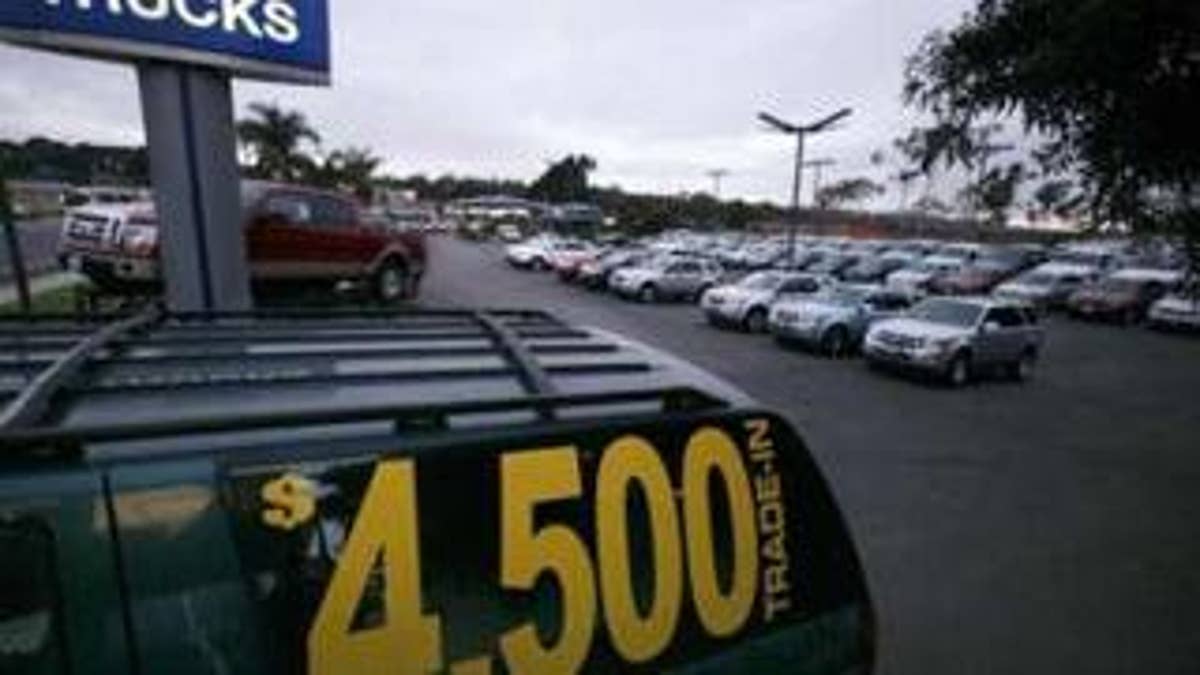
A significant hurdle to extending the "cash for clunkers" policy fell Monday, as three key senators endorsed the move to pump another $2 billion into the popular auto trade-in program which is running out of money.
Sens. Dianne Feinstein, D-Calif.; Susan Collins, R-Maine; and Charles Schumer, D-N.Y., held a press conference late Monday afternoon to say the program should be funded without delay and that the Senate should vote for the extension the House passed overwhelmingly on Friday. Cash for clunkers pays people to trade in their gas-guzzling "clunkers" for new, fuel-efficient cars.
"The best solution is to continue and extend the program as it is," Feinstein said. "The program appears to be running very well."
The endorsement came after she and Collins warned last week they would not support a bill that did not meet their fuel-efficiency goals. Feinstein, Collins and Schumer were behind an alternate "clunkers" bill earlier this year that pushed for stricter fuel-efficiency standards than the one that passed Congress. They said they received assurances that if the program were to be extended, any extension would be based on their old legislation.
That's not the case. But after reviewing statistics of how the program has operated so far, the senators said Monday they believe it's working just fine and it would be inappropriate to tinker with it now.
"The bottom line is if it ain't broke, don't fix it. It's working in every way," Schumer said. "It's working as a stimulus. It's working to help families. It's working to improve mileage. What we need to do here is not put on the brakes but step on the gas, keep the program going."
Government statistics show the program has been used to fund the purchase of thousands of fuel-efficient vehicles.
Transportation Secretary Ray LaHood said the average mileage of new vehicles purchased through the program is 9.6 miles per gallon higher than for the vehicles traded in for scrap. Buyers of new cars and trucks that get 10 mpg better than their trade-ins get the $4,500 rebate. People whose cars get between 4 mpg and 10 mpg better fuel efficiency qualify for a smaller $3,500 rebate.
But the clunkers program, originally funded for $1 billion, faces strong headwinds from conservatives who view it as another taxpayer bailout for the auto industry.
The original legislation carried an expiration date of Nov. 1 but never mandated that the program last until then.
"Program runs through Nov 1, 2009 or when the funds are exhausted, whichever comes first," reads the government Web site for the "clunkers" program.
The exhaustion of funds simply came before the expiration date. Senate Republicans are suggesting it's too late to change the allocation now.
Sen. Jon Kyl of Arizona, the Senate's second-ranking Republican, suggested lawmakers "take a time-out" so they could receive more details about the program before providing more money.
"I'm concerned that somebody's going to have to pay for this, and $4,500 for everybody that wants to take advantage of this program is a lot of money."
"We were told this program would last for several months," Senate GOP Leader Mitch McConnell of Kentucky said. "It ran out of money in a week, prompting the House to rush a $2 billion extension before anybody even had time to figure out what happened to the first billion."
McConnell said, "It's not a bad idea to look for a second opinion. All the more so if they say they're in a hurry."
Fierce lobbying for the program came from other quarters: The National Automobile Dealers Association and the American International Automobile Dealers contacted thousands of dealerships, telling them to bombard the Senate with phone calls and e-mails.
"This is the one true stimulus that seems to be working out of all the things that have been tried in the last few months," said Cody Lusk, president of the international group.
LaHood said Monday he expects the extension will pass the Senate. Though no vote is expected in the Senate Tuesday, a senior Democratic adviser told FOX News that Senate leaders hope to act on the extension later this week.
White House Press Secretary Robert Gibbs estimated the additional $2 billion would allow consumers to take advantage of the incentives through September.
Gibbs said if the Senate failed to provide the extra money, "it's unlikely that we'll make it to the weekend with a program that can continue."
Lawmakers are talking about pulling the $2 billion from an energy loan fund in the stimulus package, but the three senators who backed the extension Monday said the funding source might have to be changed.
Feinstein said the money should be taken from another source within the stimulus. Collins suggested it be taken from bailout money already set aside for the auto industry.
Despite backing the extension, Collins said she was still disappointed it did not allow people to trade in "clunkers" for used fuel-efficient vehicles. She said some constituents still can't afford new fuel-efficient vehicles even with the government vouchers.
"With credit being tight this is a real problem for lower-income consumers," she said. "I do believe that's a flaw in the current law."
The Associated Press contributed to this report.




